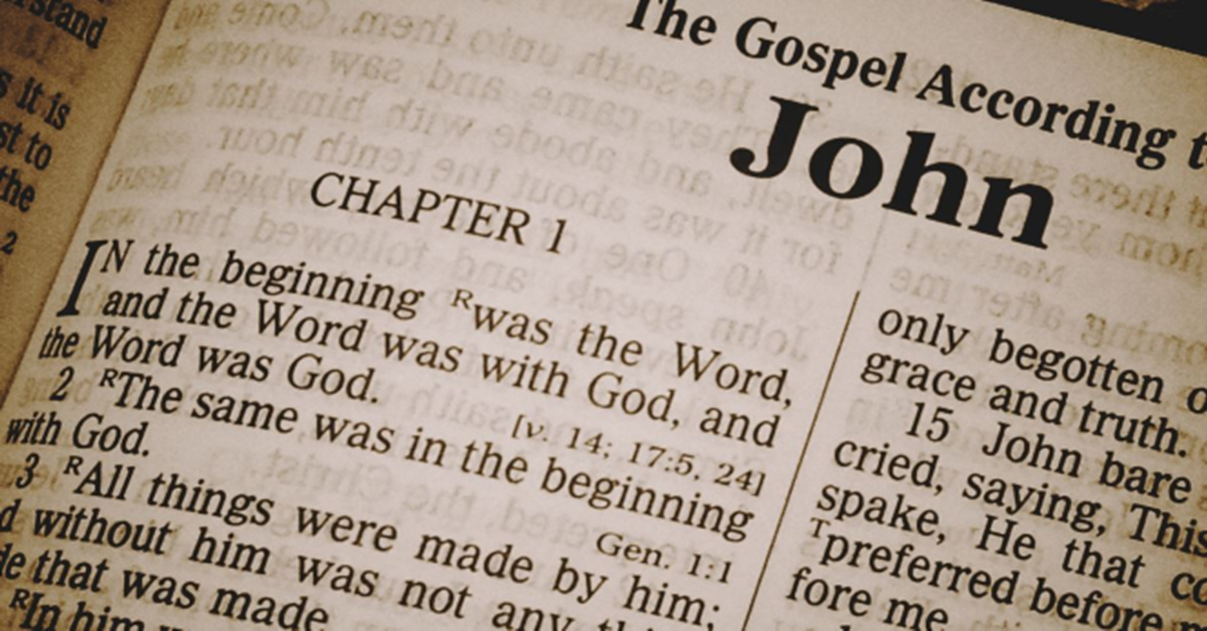Logos

LOGOS (GR Word). The Greek word logos already had a long history before it was used by St. John the Evangelist. Its three principle meanings are: "think, reckon, and speak". At its most profound level logos conveys: the meaning, the ordering, and reasonable content. It also came to be identified with Universal Reason, and Creative Reason. St. John completes the philosophical truths of the Ancient Greeks, by connecting them to the Jewish Tradition of his day. So when St. John's Gospel tells us, "In the beginning was the Word, and the Word was with God, and the Word was God (...)" (John 1:1), St. John clearly uses this expression for Jesus Christ who is the Word of God, Who was God from the beginning. We also refer to the Word of God as the "Son," "Wisdom," and "Power" of God. It is this Logos/Word of God Who becomes Incarnate as Jesus of Nazareth. When the fullness of time came (i.e. at the most appropriate time), God sent His Son to become man "through the Holy Spirit and the Virgin Mary." The Second Person of the Holy Trinity left Heaven and came down to earth as God and God-man - the LOGOS was incarnated: " And the Word became flesh and dwelt among us" (John 1:14). Jesus Christ not only gives God's Word to us humans; He is the Word. Jesus became human to live among us. He enters our humanity. With His birth as man, history was divided into two divisions – before and after Christ. The counting of time started all over again. The LOGOS is the Eternal Word in action - not an irrational action or a sheer expression of feeling. The Logos is God active in creation, revelation, and redemption in a coherent way Who is announced in John's Gospel: "All things were made through Him, and without Him nothing was made that was made." (John 1:3). This Gospel is read at Divine Liturgy on Easter Day.
Logos
LOGOS (du grec: parole; du latin: verbum) - désigne la deuxième personne de la Sainte Trinité, le Fils de Dieu, Sa Parole. Le Fils, le Verbe ou la Parole de Dieu, identifié comme celui qui était avec Dieu (Jean 1,1), est celui par qui le Père a créé le ciel, la terre et toutes choses. Le Verbe divin s'est fait chair en Jésus-Christ: «(...) Et la parole a été faite chair (...)» (Jean 1,14). «Lorsque les temps furent accomplis »- c.-à-d. en un temps et en lieu donnés et au moment le plus opportun - Dieu s'est incarné en un homme, Jésus-Christ. C'est l’union parfaite et sans confusion de la nature divine de la Personne du Verbe et de la nature humaine issue de la Vierge Marie: le Fils de Dieu a assumé une nature humaine pour accomplir en elle le Salut des hommes. Jésus est un vrai homme doué d’une volonté humaine, et le vrai Verbe de Dieu dont la volonté divine est commune avec celle de Dieu le Père. Le LOGOS est la Parole éternelle en action - non pas une action irrationnelle ou une simple expression de sentiment. La Parole est Dieu actif dans la création, la révélation et la rédemption de manière cohérente, comme l'annonce l'Évangile de Jean: «Toutes choses ont été faites par elle, et rien de ce qui a été fait n'a été fait sans elle. » (Jean 1, 3). Cet évangile de Jean est lu à la Liturgie pascale.